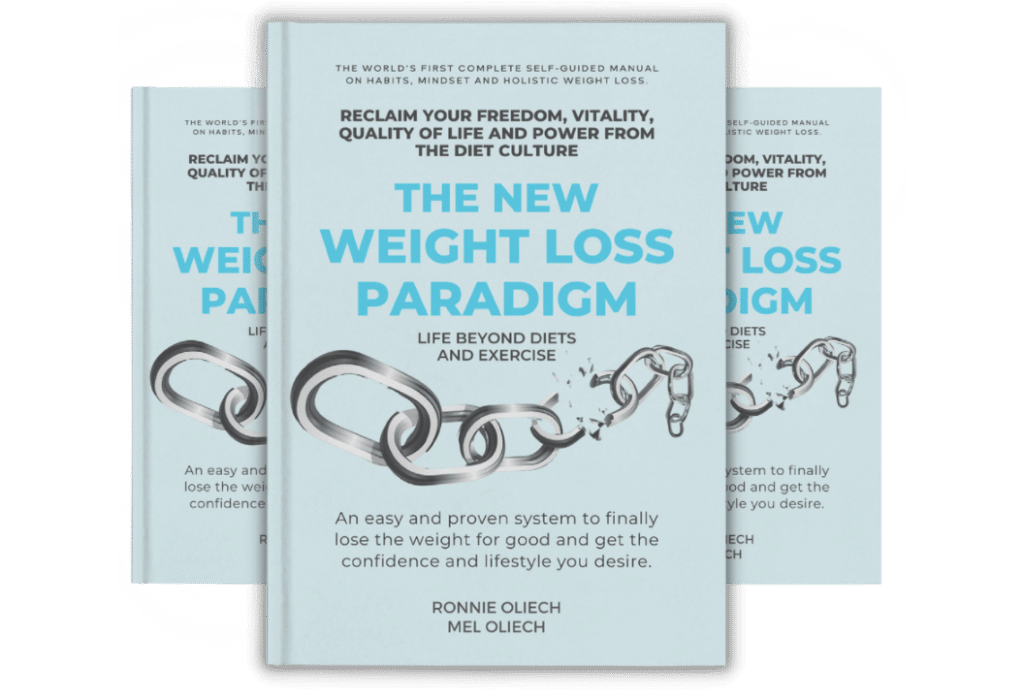If you’ve struggled with your weight for a long time, you may be considering weight loss surgery.
On the surface, it may seem like the easy solution to your weight problem, but like many quick-fixes, it’s likely to lead to more pain than gain.
What is weight loss surgery?
Weight loss surgery, also known as bariatric surgery, is a surgery designed to make your stomach smaller. This means you feel full after eating only a small amount of food. Because you’re consuming less calories, you will end up losing weight.
In Australia, the most common types of bariatric surgery are lap band surgery (called gastric banding), gastric bypass and gastric sleeve surgery.
Lap band surgery — an adjustable ring is placed around the top part of your stomach which creates a small ‘pouch’. This increases the amount of time that food remains in the top part of your stomach.
Gastric bypass — this technique involves dividing your stomach into a small upper pouch and a larger ‘remnant’ pouch. Some of your small intestine is removed, while the rest is moved to connect to the upper pouch. Food then bypasses most of the stomach, which causes fewer calories to be absorbed by your stomach.
Gastric sleeve surgery — this surgery removes most of your stomach, including the part that produces the hormones that make you feel hungry. So of course, you naturally end up eating less.
If that sounds pretty drastic, then you’re right.
So why would someone have weight loss surgery?
Why do people have weight loss surgery?
Doctors may recommend weight loss surgery to those who have struggled to lose weight for a long time. These people usually carry a lot of weight, and they may also have other serious health conditions related to their weight. In Australia, there are several conditions you need to meet in order to have surgery, including your age, your weight, your BMI, and evidence that you have tried and failed to lose weight several times in the past. There are also other medical criteria that you may have to meet.
Even though this type of surgery is drastic, and meeting eligibility criteria can be complex, many people consider it as a viable solution to their weight problem.
When someone is at the stage of considering major surgery that will forever change the way they eat and live, we know that they are desperate for a solution to their pain. People considering surgery may see it as an easy way out of their weight loss predicament because they are promised big weight loss in a relatively short time. And they are afraid that if they don’t take drastic action, they will never lose weight, and will never feel better about themselves.
However, the decisions you make when you’re afraid are usually emotional decisions rather than rational ones, which usually lead you into even more trouble.
Why you need to think twice?
Of course, weight loss surgery may provide good weight loss results for some people. However, these results aren’t without significant cost and ongoing commitment to a new way of living.
Here’s why you need to think twice before committing to bariatric surgery.
Risks and side effects
Like all surgery, weight loss surgery does carry risks, and there can be some significant side effects as well. These include:
Surgery risks
- post-operative infection
- extensive bleeding and blood loss
- adverse reaction to the anaesthetic
- perforation of stomach and intestines
- injury to your spleen or other organs
- death in a small percentage of people.
Side effects of the procedure
- dumping syndrome (where food moves too quickly from the stomach to the small intestine) which can lead to nausea, vomiting, diarrhea, cramps, anxiety and sweating after eating
- low blood sugar
- malnutrition
- vitamin or iron deficiency
- ulcers
- bowel obstruction
- hernias
- inability to eat certain foods.
Significant changes to your lifestyle
Weight loss surgery isn’t a quick fix to your weight problem. In order to lose weight and keep it off with weight surgery, you will be required to make significant changes to your lifestyle, including your dietary and exercise habits — just as you would if you were considering a non-surgical option.
Because you can only eat small amounts of food, there is a high risk of you becoming malnourished or experiencing a vitamin deficiency. For this reason, you will most likely need to take vitamins and other supplements for the rest of your life.
After surgery, you will only be able to eat liquid foods for a couple of weeks. These will then change to pureed food and then, eventually solid food. However, there may be foods that you will no longer be able to eat, and there is every chance that you won’t be able to drink liquid when you eat your meals, simply because you will have no room in your stomach for both. You will also need to eat slowly, making sure you thoroughly chew your food.
It’s important that all your meals be comprised of highly nutritious foods in order to ensure you get adequate nutritional intake. So weight loss surgery isn’t a free pass to be able to eat whatever you like.
Financial cost
If you’re uninsured, weight loss surgery in Australia can cost as much as $20,000. On top of that, there is the cost of your sick leave and time off work.
It’s not an easy fix
Gastric surgery isn’t an alternative to a healthy diet and regular exercise. It’s actually an addition to these things. In order to optimise your results of your surgery, you will still need to spend each day practising healthy habits. You’ll have to keep a food diary, measure the quantities of your food and still make an effort to exercise. For many people, the level of commitment involved in this is much greater than they anticipated, especially if they went in expecting that surgery would be the ‘magic fix’ for all their weight loss woes.
No guarantee you’ll keep the weight off
Many people believe that weight loss surgery is a sure-fire way to lose weight and keep it off for good. However, this is not the case. Unless you keep up with your healthy lifestyle changes, you will stop losing weight and may even gain your weight back. Just like non-surgical options, you will need to develop new habits to ensure your healthy lifestyle changes become second nature.
You’re not addressing habits
Unfortunately, weight loss surgery isn’t a long-term solution to your weight problem because it fails to address the key reasons you became overweight in the first place. Unless you change your habits — thoughts, mindset and beliefs — then there is a very strong chance that you will end up gaining back your weight.
Common habits that cause weight gain and prevent people from losing weight, which are not fixed by weight loss surgery include:
- Low self-esteem and low self-worth
- Lack of confidence
- Comparing yourself with others
- People pleasing
- Putting your needs behind other people’s
- Perfectionism
- Caring about what others think
- Letting fear dictate their actions
- Self-entitlement
- The need to control everything.
Unless you address these habits, then weight loss surgery will only be an expensive, painful band-aid solution, that won’t truly solve your weight problem.
It won’t solve your emotional problems
A lot of people believe that if they can just lose weight, they will be happier, more fulfilled, feel worthy and confident. However, weight loss is not the solution here. The truth is that in order to lose weight, you need to feel worthy first. You need to feel confident and you need to accept your body as it is, in order to change it. No surgery can fix the emotional baggage that you carry around with you, and if you think it can, you will be very disappointed.
Research has shown patients who have had weight loss surgery experienced worse mental health within 10 years of the surgery. Many experienced general worsening of their mental health, neuroticism, control issues and fear of intimacy. Patients who have had weight loss surgery also have a higher risk of suicide — all of this proving that surgery isn’t an easy fix for your emotional issues.
It’s not a ‘magic’ solution to your problem
Quite simply, weight loss surgery isn’t the magic solution to your weight problem that you might think it is.
It is very expensive, laden with risk and serious side effects, and you still have to put in the work to make significant lifestyle and habit changes in order to keep the weight off.
Which begs the question — wouldn’t it be better to skip the surgery and just get on with the work of addressing your lifestyle and habit choices so you can lose weight, without the significant cost and risk to your health?
Because weight loss surgery doesn’t mean you get out of doing the work. You still have to develop habits to ensure you exercise regularly. You still need to overcome the reasons you engage in emotional or binge eating. You still need to work on improving your self-worth and confidence. And on top of that, you are severely limited to what and how you eat for the rest of your life.
Imagine not being able to enjoy cake on your birthday.
Imagine going to a restaurant and barely being able to fit in an appetiser.
Imagine having to weigh your food, and track what you eat to ensure you’re eating enough nutrition.
Imagine having to take vitamins and supplements for the rest of your life.
Imagine having to choose between whether you eat or drink.
Imagine going through the surgery, to still feel unhappy and unworthy.
At Imani Tribe Transformations we help people address the key reasons that led them to gain weight in the first place. We help people grow in confidence. We help people develop self-worth. We help people improve their habits around food and nutrition and we show them how to exercise just enough hours in the week, without it becoming overwhelming. And we help them find peace and happiness regardless of their weight, so they can finally be on the path that will lead to permanent weight loss.
In short, we help people improve their lives — physically, emotionally and mentally — without the need for surgery.
If you’re ready to change your life, we’re ready to help you.


















